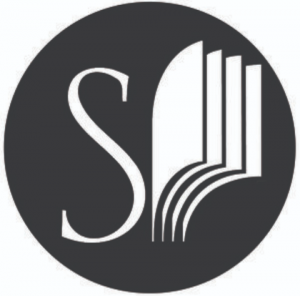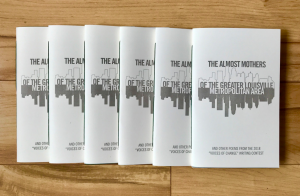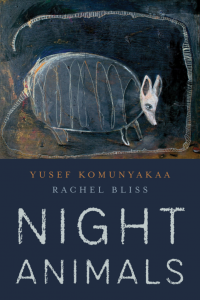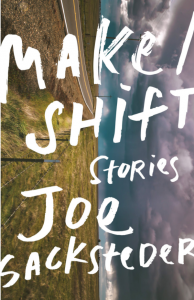We spoke with Sarah Gorham, the cofounder and editor-in-chief of Sarabande Books, in this installment of the CLMP Member Spotlight series.
What is the history behind Sarabande Books? When was it founded and what is its original mission?
 Sarabande was founded in 1994, during a recession when many presses were closing their doors to collections of poetry and short fiction, largely because they were difficult to sell. We wanted to offer a home for the work of these writers—some good news for a change. We launched our first national contests in 1995 (the Mary McCarthy Prize in Short Fiction and the Kathryn A. Morton Prize in Poetry, judged by distinguished writers). Because at first we didn’t charge submission fees, we received 1,800 poetry and 750 short fiction manuscripts. Quite a bit of paper! We set to work screening and published four inaugural titles in 1996. To our great surprise, the very first story collection was reviewed in The New York Times Book Review. We added two books a year until we reached 12 collections annually. We also managed to obtain the services of Consortium Book Sales and Distribution before we even had a sales record.
Sarabande was founded in 1994, during a recession when many presses were closing their doors to collections of poetry and short fiction, largely because they were difficult to sell. We wanted to offer a home for the work of these writers—some good news for a change. We launched our first national contests in 1995 (the Mary McCarthy Prize in Short Fiction and the Kathryn A. Morton Prize in Poetry, judged by distinguished writers). Because at first we didn’t charge submission fees, we received 1,800 poetry and 750 short fiction manuscripts. Quite a bit of paper! We set to work screening and published four inaugural titles in 1996. To our great surprise, the very first story collection was reviewed in The New York Times Book Review. We added two books a year until we reached 12 collections annually. We also managed to obtain the services of Consortium Book Sales and Distribution before we even had a sales record.
Last year you celebrated Sarabande Books’s 25th anniversary. How has the press grown and changed over the past quarter century?
Yes, 25 years! Do check out our micro-documentary on our website! Since 1994, we have added essay collections to our list and were among the first to feature lyric essays and hybrid works. Through our Linda Bruckheimer Series in Kentucky Literature we publish books about the state or by writers who were born or lived in the state for two years. Our Flo Gault Student Poetry Prize honors poets studying at the college level with broadsides and cash.
The Internet changed things for sure. We added Sarabande-in-Education, a web-based reader resource with study questions and writing prompts created by our authors, as well as interviews and reviews.
Rather than top-down decision making, in most cases, we work as a team. This includes decisions on manuscripts, covers, workload, and events, as well as when to have lunch at the Mayan Café across the street. Everyone on the staff and most board or advisory board members are writers. We have settled on publishing ten or eleven titles a year, so that each one gets the attention it deserves. With the input of our authors we help arrange tours, post ads, visit reviewers in person, make regular use of social media, and often create swag (shot glasses, “witches brew” tea bags, stickers, key bobs, and more, depending upon the book).
Sarabande Books has several programs that engage with your local Louisville and Kentucky communities. What are the Sarabande Writing Labs, and how has this program adapted to the current pandemic?
 Since 2014, Sarabande Writing Labs has offered free writing, mentorship, publishing, and performance opportunities to writers in Louisville. Our programs have been held in partnership with youth detention centers, homeless shelters, community centers, and libraries. In six years, we’ve hosted dozens of workshops in poetry and essay, and published over two hundred Louisville writers in more than seventeen handmade chapbooks. These events are, of course, better in person, but we’ve held workshops on Zoom, created magazine packets for young people to make their own zines, and run an annual writing contest called “Voices of Change, Youth Against Violence.”
Since 2014, Sarabande Writing Labs has offered free writing, mentorship, publishing, and performance opportunities to writers in Louisville. Our programs have been held in partnership with youth detention centers, homeless shelters, community centers, and libraries. In six years, we’ve hosted dozens of workshops in poetry and essay, and published over two hundred Louisville writers in more than seventeen handmade chapbooks. These events are, of course, better in person, but we’ve held workshops on Zoom, created magazine packets for young people to make their own zines, and run an annual writing contest called “Voices of Change, Youth Against Violence.”
What is the Young Professionals Board? What was the inspiration for this program?
This is the brainchild of our Managing Editor Kristen Miller, who has cultivated a community of young, energized, arts-engaged leaders. Young Professionals Board members gain access to exclusive networking and leadership opportunities and an insider’s look at independent book publishing at Sarabande. There are seventeen members, organized into several committees: finance, marketing, and programming. Annual membership dues are $250-$300, depending upon time of payment. They all receive a number of perks: a subscription to all Sarabande titles; monthly happy hour at Sarabande’s NULU office; an exclusive, behind-the-scenes look at the Sarabande publishing process (from acquisition to finished product); leadership opportunities with Sarabande’s local outreach and events; mentorship opportunities with rising professionals in our internship program; discounted entry to ticketed events; and, most importantly, a path to leadership with Sarabande’s Board of Directors.
Can you tell us about the Quarternote Chapbook Series? How did this come about?
 Interesting story. Frank Bidart came to read at the University of Louisville and when we were escorting him back in our car, he mentioned a group of poems he’d just finished called “Music Like Dirt.” He wondered which publishers he should approach, and we immediately chimed in, “Oh, we can do that for you, Frank.” Thus began the Quarternote Series, which focuses on distinguished writers and is selected by solicitation. The Series is eighteen strong, with poets including Yusef Komunyakaa, Heather McHugh, Khaled Mattawa, Kimiko Hahn, Sandra Cisneros, Lydia Davis, Louise Glück, Robert Pinsky, and more. Because of our enthusiasm for hybrids, we’ve expanded the mission slightly to include stories and essays as well. By the way, Bidart’s Music Like Dirt was one of four finalists for the Pulitzer Prize.
Interesting story. Frank Bidart came to read at the University of Louisville and when we were escorting him back in our car, he mentioned a group of poems he’d just finished called “Music Like Dirt.” He wondered which publishers he should approach, and we immediately chimed in, “Oh, we can do that for you, Frank.” Thus began the Quarternote Series, which focuses on distinguished writers and is selected by solicitation. The Series is eighteen strong, with poets including Yusef Komunyakaa, Heather McHugh, Khaled Mattawa, Kimiko Hahn, Sandra Cisneros, Lydia Davis, Louise Glück, Robert Pinsky, and more. Because of our enthusiasm for hybrids, we’ve expanded the mission slightly to include stories and essays as well. By the way, Bidart’s Music Like Dirt was one of four finalists for the Pulitzer Prize.
What are some of your hopes and goals for the future of Sarabande Books?
 Small and independent presses are uniquely positioned to be agents of change in the industry. When we founded Sarabande, our goal was to champion talented writers who were lacking a home for their work. At the time, we identified these broadly as writers of poetry and short story collections, but obviously there were and are many other important disparities and huge strides yet to be made. Industry research has made clear that BIPOC writers are not seeing publication as frequently and not receiving equitable advances. At Sarabande we strive and will continue to strive for inclusivity and equity at all levels of our organization: from internships and contest judges to board members and published authors. As we have been in the past, we hope to be leaders toward meaningful change in the publishing industry.
Small and independent presses are uniquely positioned to be agents of change in the industry. When we founded Sarabande, our goal was to champion talented writers who were lacking a home for their work. At the time, we identified these broadly as writers of poetry and short story collections, but obviously there were and are many other important disparities and huge strides yet to be made. Industry research has made clear that BIPOC writers are not seeing publication as frequently and not receiving equitable advances. At Sarabande we strive and will continue to strive for inclusivity and equity at all levels of our organization: from internships and contest judges to board members and published authors. As we have been in the past, we hope to be leaders toward meaningful change in the publishing industry.
We also hope to continue investing in our local arts community. We’ve recently emphasized creative collaborations with art organizations in other disciplines, such as our partnership with KMAC Museum’s “KMAC Couture” event. A local textile artist created a couture gown from dismantled copies of Make/Shift by Joe Sacksteder, which was modeled on the KMAC runway as part of Sacksteder’s book launch. We’ve also partnered or have made plans to partner with Kentucky Shakespeare, the Louisville Ballet, and Fund for the Arts Awards in the Arts program. We treasure our relationships with local arts orgs and look forward to many more collaborations in the future.
